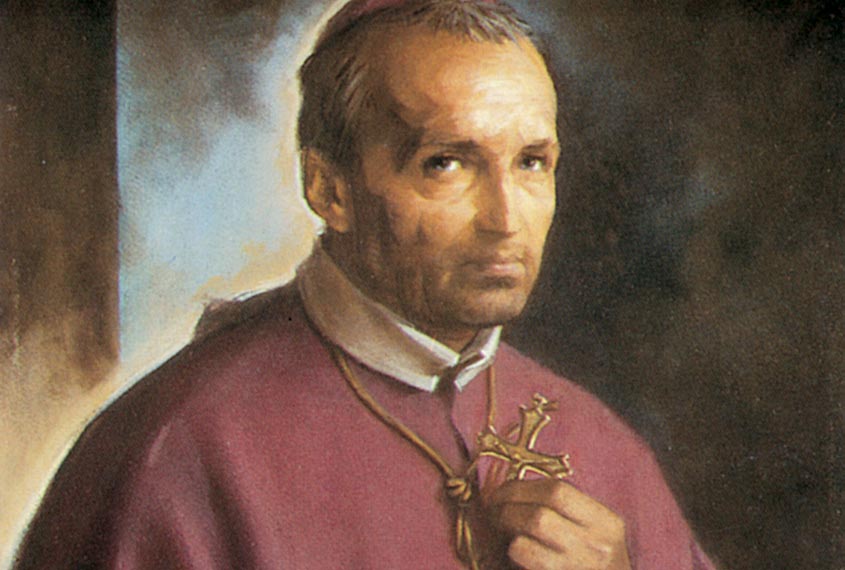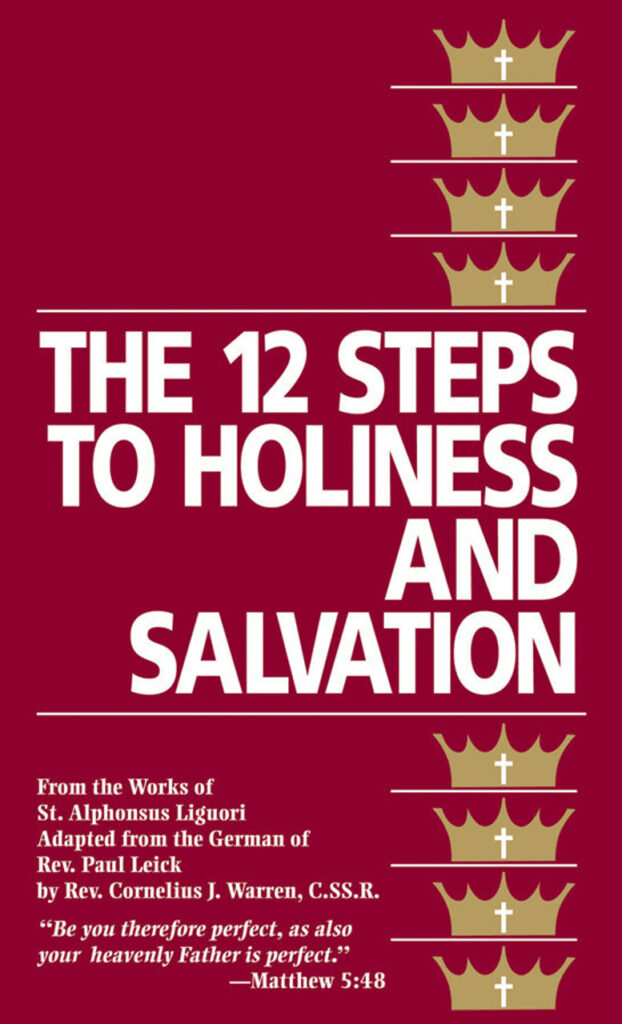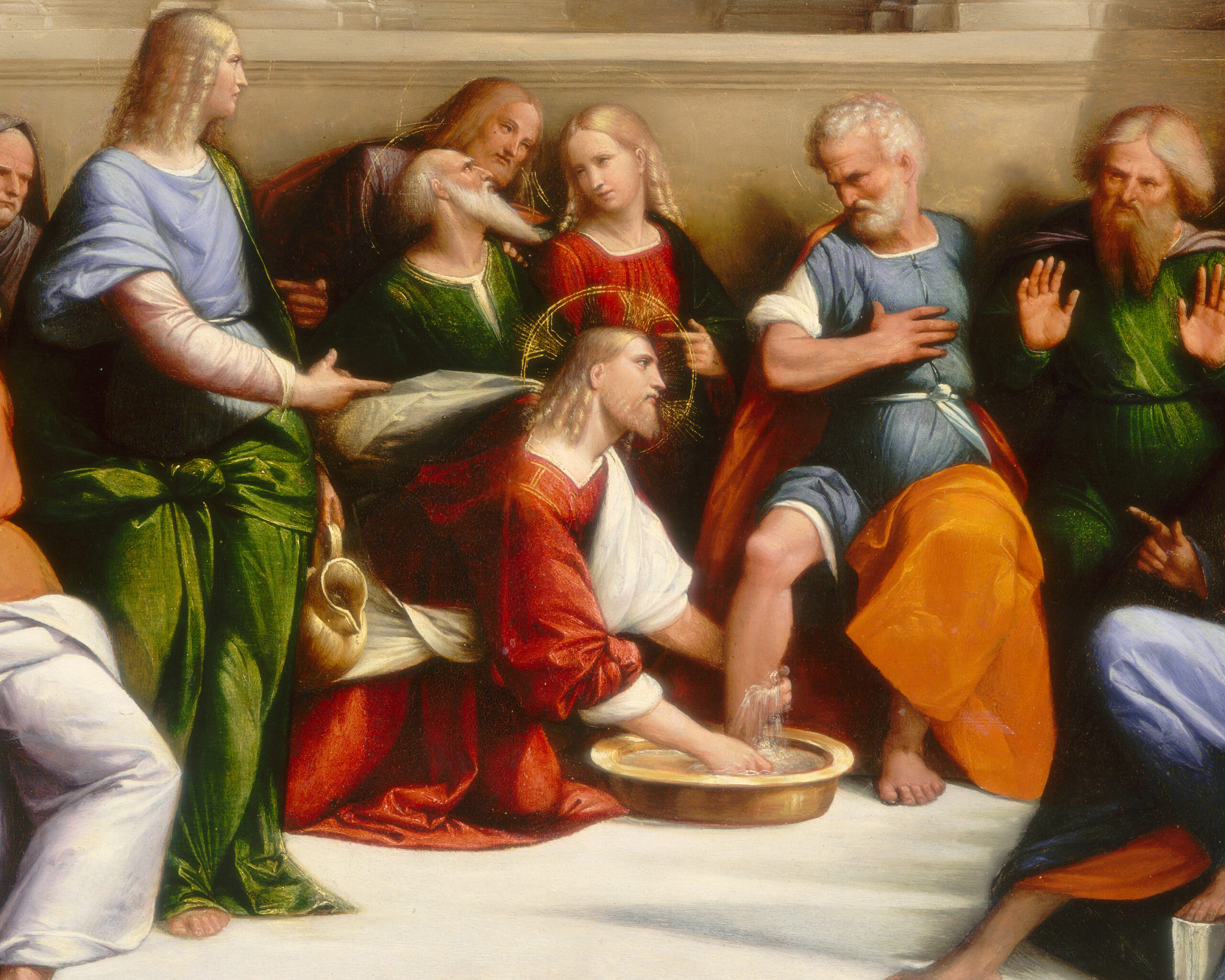Carved out from St. Alphonsus’s greatest writings, The 12 Steps to Holiness and Salvation contains classic texts of Catholic spirituality that teach you the practical way to Heaven. This excerpt guides the soul in the virtue of obedience.
Perfection consists in the conformity of our will to the Will of God. Now what is the surest means of knowing God’s Will, and of regulating our lives according to it? It is obedience toward our lawful superiors. “Never is the Will of God more perfectly fulfilled,” says St. Vincent de Paul, “than when we obey our superiors.”
The greatest sacrifice that a soul can make to God consists in obedience to lawfully constituted superiors, for as, in the opinion of St. Thomas, “nothing is dearer to us than the liberty of our will,” we can offer to God no more acceptable gift than this very liberty. “Obedience is better than sacrifices,” says the Holy Ghost (1 Kings 15:22); that is to say, God prefers obedience to all other sacrifices.
He who gives his property to God, by distributing it among the poor; his honor, by patiently bearing contempt; his body, by fasts and penitential works, gives Him a part of himself. But he who offers God his will, by subjecting it to obedience, gives Him all he has and can truly say: “My Lord, after I have given Thee my will, I have nothing more to give.” As St. Gregory says: “By the other virtues we give to God what belongs to us; by obedience we give Him ourselves.” The same Saint teaches that all the other virtues follow in the train of obedience and by its influence are preserved in the soul.
Qualities Of Obedience
Obedience, however, to have this high value must be supernatural. To obey the Church, our parents, our confessor—in a word, our spiritual and temporal superior—in a meritorious way, we must be persuaded that obedience toward our superiors is obedience shown to God, and contempt for their commands is contempt shown to our Divine Master Himself, for He has said to our superiors: “He that heareth you heareth me, and he that despiseth you despiseth me.” (Luke 10:16). The Apostle St. Paul, writing to his disciples, says: “Obey, not serving to the eye, as it were pleasing men, but as the servants of Christ, doing the will of God from the heart.” (Eph. 6:6).
If, then, an order is given you by your parents, your confessor, or your superiors, you must execute it not merely to please them but principally to please God, whose will is made known to you by your superiors. By so doing, you are more certain of fulfilling the Will of God than if an angel came down from Heaven and revealed it to you. St. Paul, when writing to the Galatians, says: “If an angel from Heaven preach a gospel to you besides that which we have preached to you, let him be anathema.” (Gal. 1:8). Keep this truth constantly before your eyes: when you obey your superiors, you are obeying God. If Our Lord came in person and charged you with some office or some particular work, would you hesitate a moment to obey? Would you begin to excuse yourself and oppose obstacles to the fulfillment of His command? But, says St. Bernard, whether it is God Himself or one who takes His place that gives the command, you must render the same prompt and cheerful obedience.
Reward Of Obedience
According to the Venerable Sertorius Caputo, the reward of obedience is similar to that of martyrdom. In martyrdom, we offer to God the head of our body; by obedience we offer Him our will, which is the head of the soul. Therefore the Wise Man assures us that “an obedient man shall speak of victory.” (Prov. 21:28).
It is easy, says St. Gregory, for those who obey to overcome all the attacks of Hell, for since by obedience they subject their will to men, they rise superior to the demons who fell on account of their disobedience.
Cassian adds that if we mortify our self-will, we can easily root out all vices, because the latter spring from the former.
St. Augustine says that while Adam through disobedience brought destruction upon himself and all his posterity, the Son of God became man to redeem us and to teach us true wisdom by His life of obedience. For this reason, He began as a child to practice obedience when He was subject to Mary and Joseph: “He was subject to them,” says St. Luke (2:51).
What our Saviour began as a child He continued His whole life, so that St. Paul could say: “He was obedient unto death, even to the death of the cross.” (Phil. 2:8).
The Mother of God revealed to one of her servants that Our Lord when dying for us entertained a very special love for obedient souls. To increase our merit, Our Lord desires us to be guided by faith. Therefore, instead of speaking to us Himself, He makes His Will known to us by means of our superiors. When Jesus appeared to St. Paul and converted him on the road to Damascus, the future Apostle said: “Lord, what wilt Thou have me to do?” The Lord could easily have instructed him then and there, but He did not; He merely said: “Arise and go into the city, and there it shall be told thee what thou must do.” (Acts 9:7).
Accordingly, St. Giles maintains that we gain more merit by obeying man for the love of God than by obeying God Himself. When we obey lawful superiors, we are more sure of doing the Will of God than if Jesus Christ Himself would appear and speak to us. Such an apparition might afford us no certainty that it really was our Saviour who appeared and spoke; the evil spirit can appear as an angel of light in order to deceive us. But when we receive a command from our superiors, we are certain that in obeying them we are obeying Jesus Christ Himself. “He that heareth you, heareth me.” (Luke 10:16).
ooo
This article is taken from a chapter in Twelve Steps to Holiness and Salvation by St. Alphonsus Liguori which is available from TAN Books.









